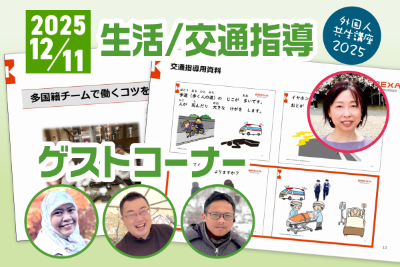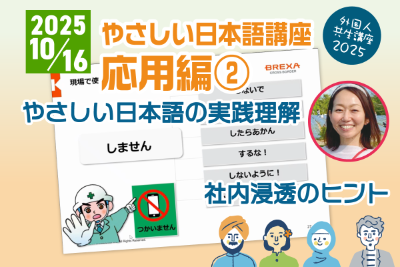- やさしい日本語
- ひらがなをつける
- Language
We provide multilingual content through machine translation. Translation accuracy is not 100%. About the multilingualization of the JAC website
- About JAC
- JAC Membership Information
- Specified Skilled Worker Acceptance
- Specified Skilled Worker Overview of the system
- 10 Mandatory Assistance for Foreigners
- Online individual consultation
- Seminar on Coexistence with Foreign Nationals
- Leading examples of host companies
- Case studies collection "Visionista"
- Foreigner's Voice
- Foreign Resident Acceptance Manual / Q&A
- Useful column "JAC Magazine"
- Acceptance support services
- Specified Skills Acceptance Support Service
- Skills improvement support
- Online Special Education
- Skill training
- Japanese Language Course
- Education and Training Support
- Subsidy system for obtaining qualifications
- Support for creating a comfortable workplace
- Temporary Return Support
- CCUS charge support
- Support system for promoting the accumulation of employment history
- Post-acceptance training
- Compensation system for Specified Skilled Worker (i)
- Daily life support
- Medical interpretation support
- Support for daily life problems
- freeJob matching
- The Specified Skills Evaluation Exam
- Home
- JAC Magazine
- The present and future of the construction industry
- Learn from the advanced examples of accepting companies. What to do about the labor shortage in the construction industry?
- Home
- JAC Magazine
- The present and future of the construction industry
- Learn from the advanced examples of accepting companies. What to do about the labor shortage in the construction industry?

Learn from the advanced examples of accepting companies. What to do about the labor shortage in the construction industry?
I wrote the article!

(One company) Japan Association for Construction Human Resources
Chief of Research and Development Department / Administration Department / Public Relations Department
Motoko Kano
(Kano Motoko)
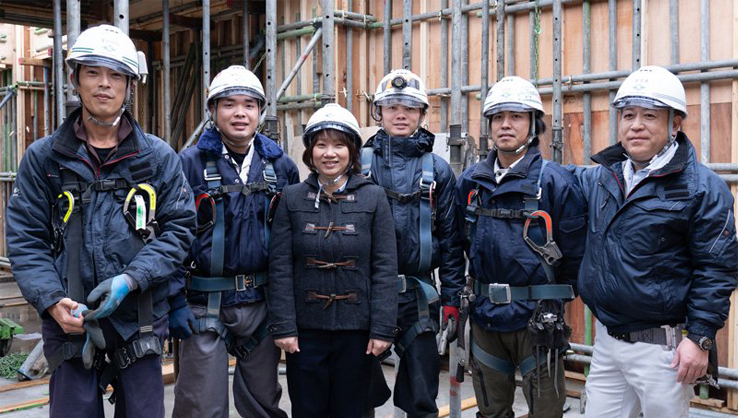
NEWS! Seven occupations, including construction and nursing care, are predicted to experience a labor shortage by 2040!
According to the Recruit Works Institute, there will be shortages in all prefectures except for Tokyo, Kanagawa, Chiba, and Osaka.
The labor shortage in the construction industry is an urgent issue
The construction industry is suffering from a growing labor shortage. The number of employees in the construction industry peaked at 6.85 million in 1997 and has decreased to 5.05 million as of November 2020. In the construction field, where it is still difficult to secure human resources despite efforts to improve productivity and secure domestic human resources, a system has been established to accept foreigners who have a certain level of expertise and skills and will be ready to work. That is the "Specified Skilled Worker system".
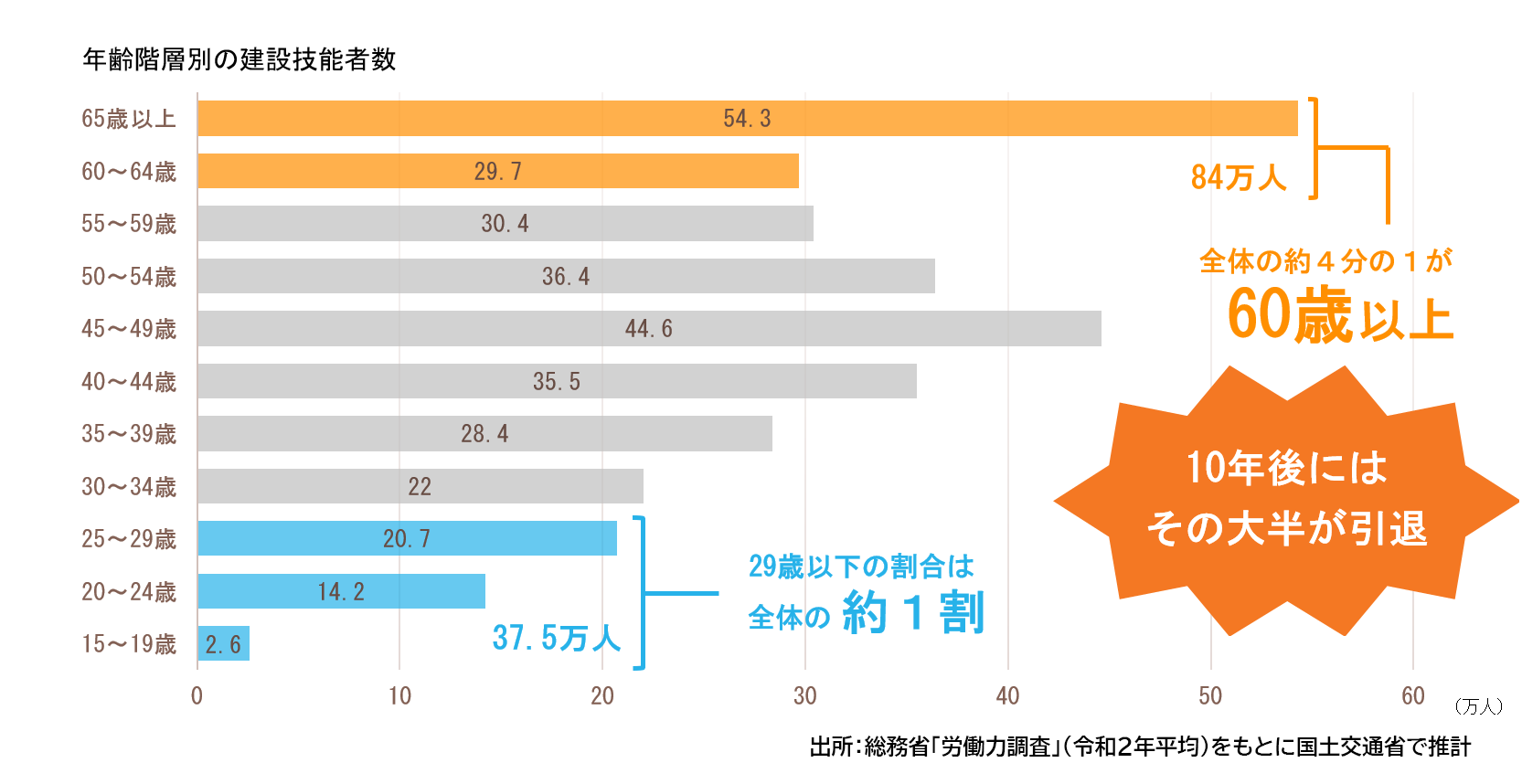
With the establishment of this system, unlike in the past, when continued residence was not allowed after completing the Technical Intern Training (ii) degree, it is now possible to continue to work as a force for companies for a total of five years. In addition, returning Technical Intern Training graduates can now be re-recruited and directly employed. Currently, the number of companies using this system is increasing, and it can be seen that it is time to seriously consider countermeasures against labor shortages.
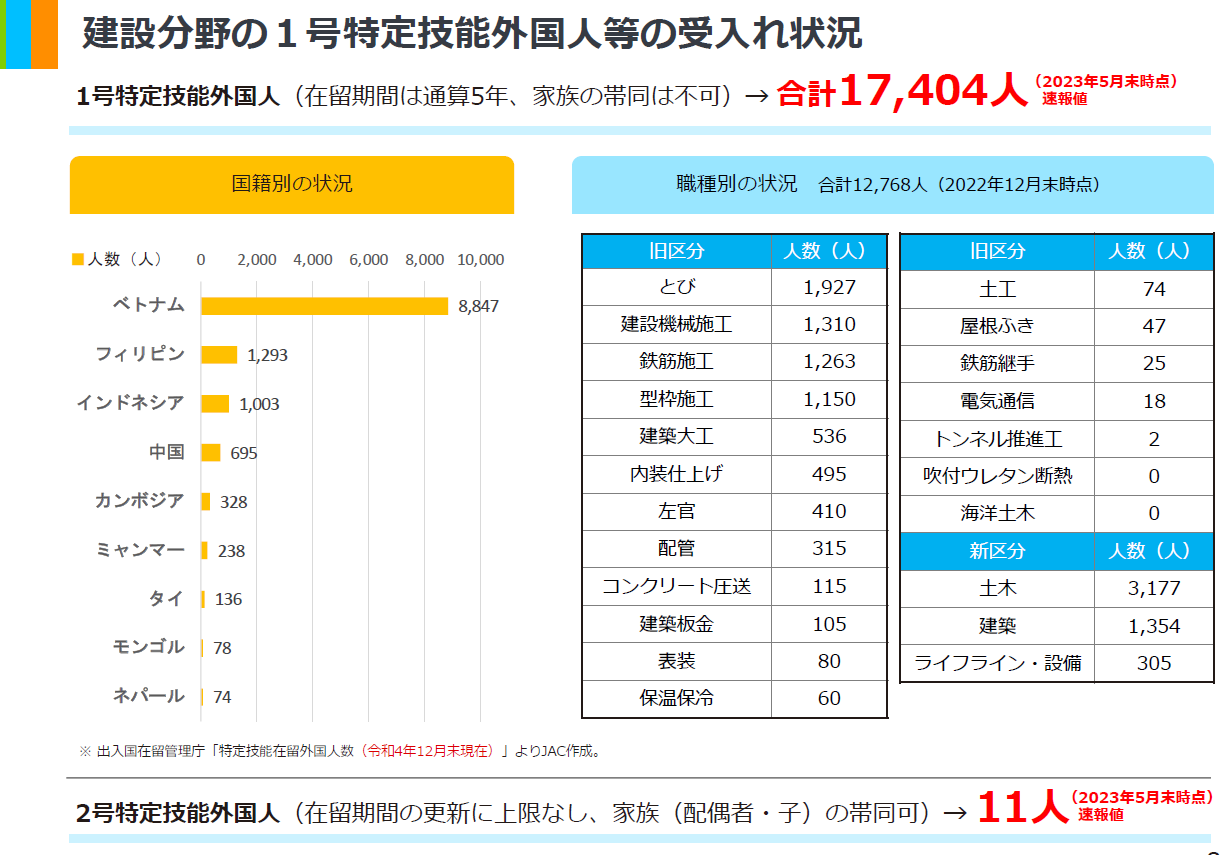
Are you considering medium- to long-term measures to secure human resources?
You may have experienced the situation where it is difficult to find people to apply. Why not consider applying for the "Specified Skills" residence status?
In the construction field, Japan Association for Construction Human Resources (Inc.) was established by specialized construction industry associations and general contractor associations, and is taking measures to prevent "illegal employment" and "violation of laws and regulations" through a solid acceptance system, and is taking sound measures to address the labor shortage. In addition, Japan Association for Construction Human Resources from before to after their acceptance, such as "free Japanese language education" and "various courses and training."
Case study: We want to create a company that attracts talented people from all over the world!
Kashiwakura Construction Co., Ltd.
Kashiwakura Construction Co., Ltd. (located in Sapporo, Hokkaido) has been accepting foreign workers since 2013. We introduce the voices of three Vietnamese workers working as formwork craftsmen there, as well as the company's president.
Host company interview
【Company Profile】
President & CEO: Mr. Kashiwakura Ichidai
Location: Hokkaido Sapporo City, Toyohira-ku, Tsukikan Higashi 2-6-2-18
Business Description: Framing construction work / Temporary Construction Material Leasing
Website:http://kashikurakk.com
21 foreigners / 108 employees
In) Specified Skills 10 / Designated Activities 5 / Technical Intern Training 6 (all Vietnamese)
- Recruiting foreigners to revitalize the industry
- Increased internal competitiveness!
- Enabling foreigners to advance their careers
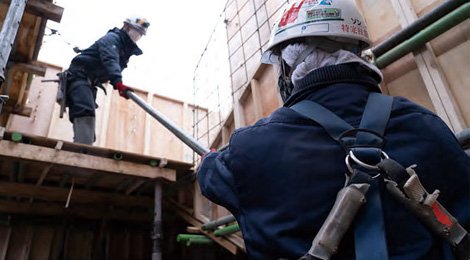
Framing construction work at the scene
Why did you decide to accept?
The construction industry still has a low employment rate and low retention rate, but there are many people around the world who are interested in Japan's construction technology. One of the reasons for this was that I thought that if these people were to work in Japan, they might draw attention to the appeal of the construction industry in Japan as well.
What was good about accepting it?
Work is like sports or hobbies; if you are motivated, you will improve quickly. In that respect, Vietnamese people work with the goal of acquiring skills, so they learn the job quickly. This makes Japanese craftsmen motivated not to lose, and the company's competitiveness has increased.
What are your plans for the future?
My goal is to create a team made up entirely of Vietnamese people, including the foreman. If they know they can advance their careers in Japan, they will be able to broaden their life plans, bringing their families with them and getting married here. Ultimately, this will lead to us being able to attract talented people, so I really want to make this a reality.
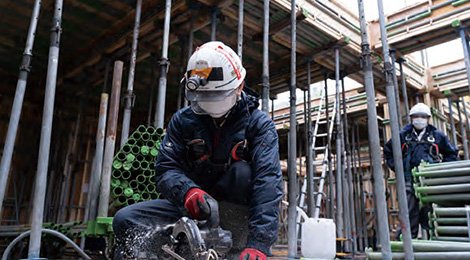
Engage in work under the direction of the foreman Specified Skilled Worker
Voices of people working on the ground
This time, we spoke with three people, Mr. Son and Mr. Luan from Specified Skilled Worker (i), and Mr. Touong from Technical Intern Training about their work and life in Japan.
He said that he was happy that he was able to become a Specified Skills and was entrusted with the difficult work of Framing construction work, and he said that he was studying to be able to read drawings and calculate more. If you can build R walls and stairs, will you be recognized as a full-fledged person? These are three people who are impressive in their smiling faces.
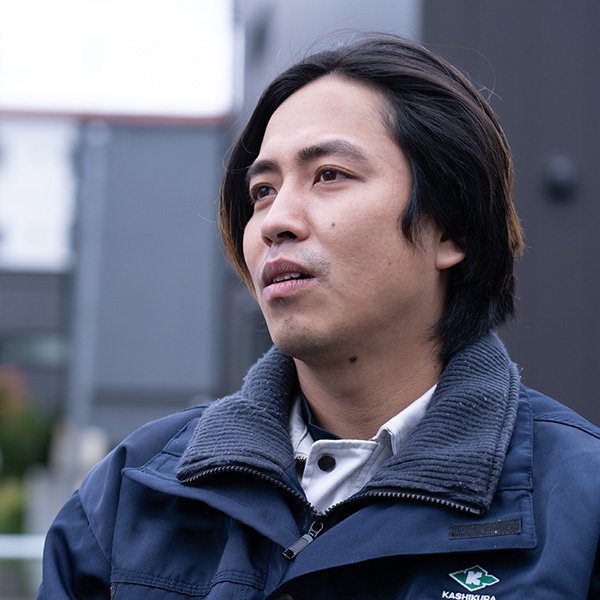
In order to meet the expectations of my family, I first aim to obtain the Frame working Skill Test Level 2!
Mr. Song
Mr. Song said that he decided to come to Japan because he wanted to learn about the high level of construction technology in Japan. Frame working In order to obtain the second level of the skill test, he is now studying how to read drawings. "I copy the drawings and take them home, and ask the foreman what I don't understand to teach me." His family in Vietnam seems to be supporting, and he is doing his best on site wearing his mother's handmade mask.
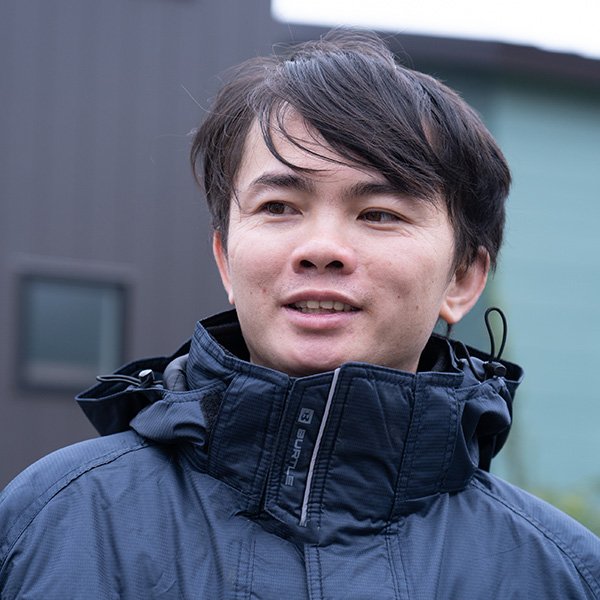
My goal is to be able to take on the difficult task of constructing stairs all by myself!
Luan
When he first came to Japan, Luan couldn't speak a word of Japanese, but now he speaks better than any other Vietnamese in the company. What made him happiest was that someone from the company came to pick him up at the airport when he entered the country. "The company treats me well, and everyone is kind to me, so I enjoy working here!"
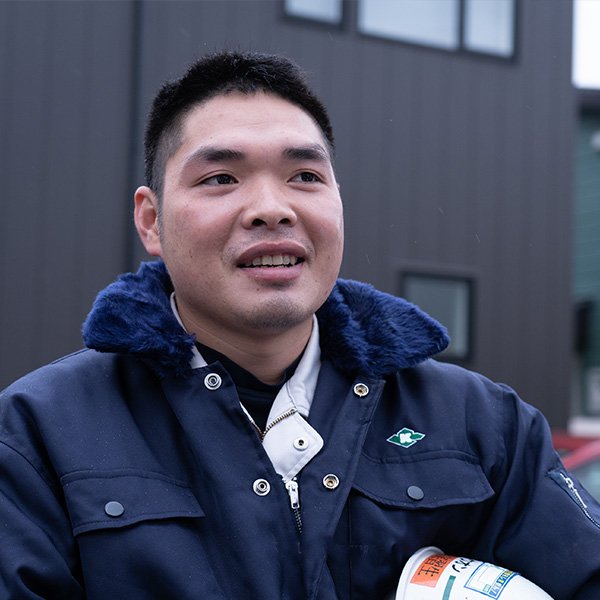
I want to learn how Japanese people approach work and contribute to my country!
Touon
Thuong says the best thing about coming to Japan was being able to learn about Japanese ways of thinking and values. "Vietnamese people can be a bit careless when it comes to work, but Japanese people are very methodical and careful. I definitely want to acquire that sense." She is a hard worker who always makes a note of any words she doesn't understand at work and looks them up later.
Initiatives of host companies
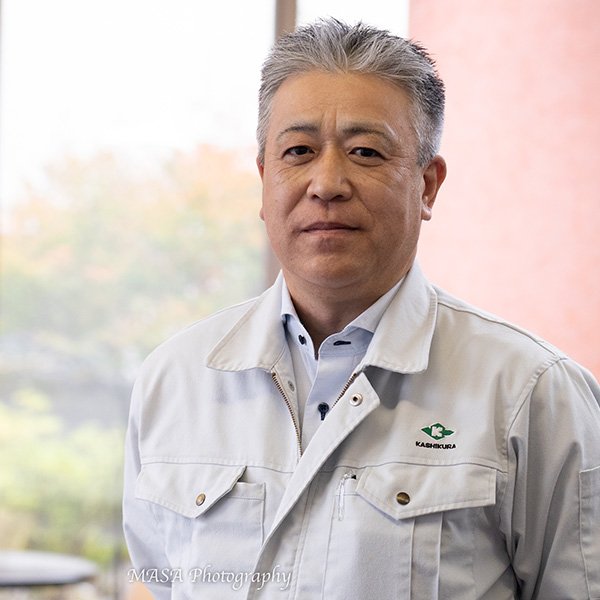
Deputy Director of Construction Department
Mr. Naoki Suzuki
Our company has been accepting Technical Intern Training students and Specified Skilled Worker since 2013, currently there are 21 Vietnamese people working. Vietnam is a country known for being pro-Japanese, and I personally have the impression that there are many serious people. In fact, they are working hard to learn the work as quickly as possible in the field. Because of this attitude, the trust of the foremen is strong, and there are many voices saying, "I want them to be in my team."
In particular, the three of Luan, Son, and Touong learned their skills quickly, and they were able to do about 80% of the formwork work by themselves. I can't speak Japanese perfectly, but they try to memorize each of them, and their communication is conveyed to a certain extent through gestures. They work really well compared to Japan craftsmen, so I look forward to their future success.
Efforts to shorten the distance
Before the COVID-19 pandemic, we deepened friendships by having employees participate in events such as potato digging and New Year's gatherings held within the company, as well as regular outdoor barbecues and Genghis Khan dinners.
They live in a dormitory, so they are often alone, especially during New Year's holidays. Communication through events also helps to smoothen work, so I hope to be able to meet up again soon.
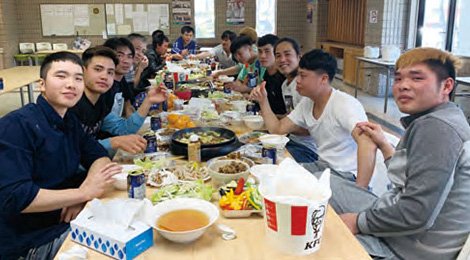
Dinner with work colleagues
Advice for companies considering accepting foreign workers
It is very important to understand the differences in customs. For example, in Vietnam, it is absolutely taboo to touch someone else's head. "The head is where the sacred spirit resides," and touching it is not acceptable for any reason.
However, there is no problem if you share such information within your company in advance. We recommend that you research the culture and customs of the other country in advance.
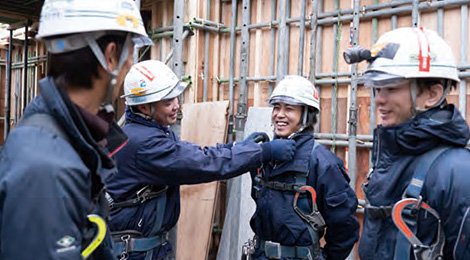
Apparently, many Vietnamese people have cheerful personalities.
Interviewed on October 29, 2021
There are many other examples of companies accepting foreign workers, so please use them as a reference.
[Please read this article]
The author of this article

(One company) Japan Association for Construction Human Resources
Chief of Research and Development Department / Administration Department / Public Relations Department
Motoko Kano
(Kano Motoko)
Born in Aichi Prefecture.
He is in charge of public relations, research and investigation, and is the person behind social media.
We update our social media accounts daily with the desire to make people fall in love with Japan, to spread the appeal of construction from Japan to the world, and to ensure that Japan's construction industry continues to be the industry of choice around the world.
He is also engaged in research into the feasibility of implementing skills evaluation exam in Asian countries, and is conducting interviews with local organizations in each country.
















